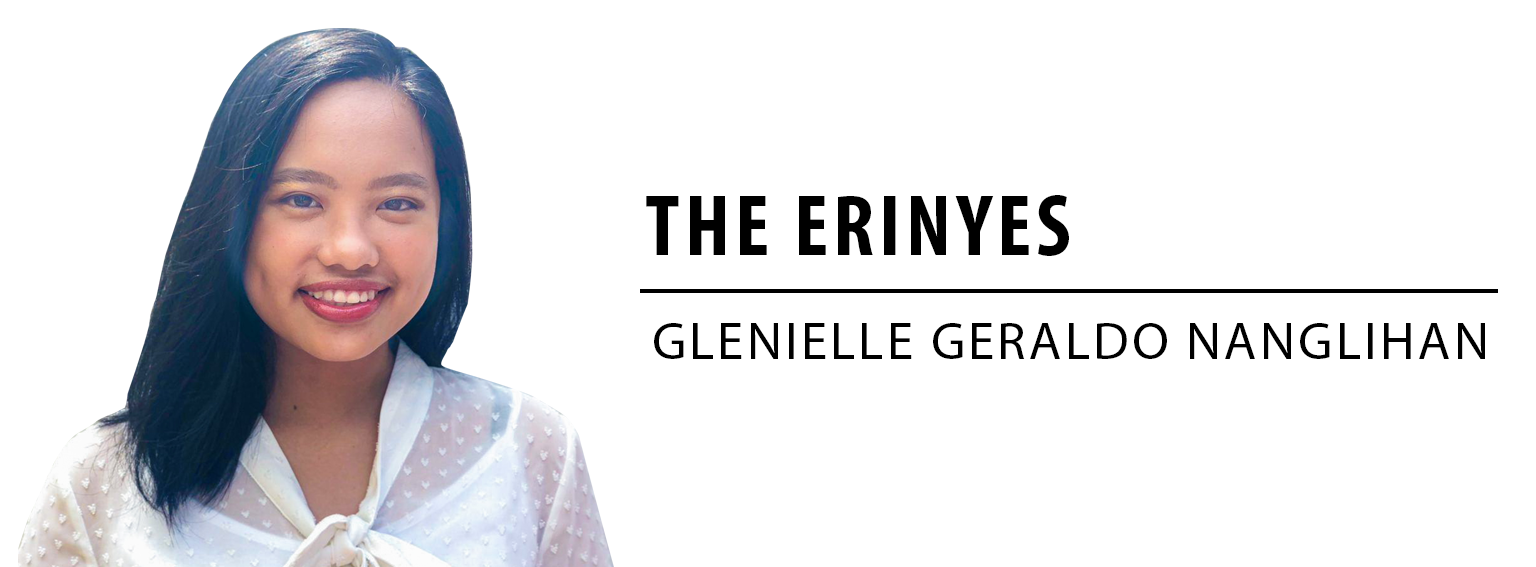
In my grade school social studies subjects, my teachers would often ask us where we are from. The word “Ifugao” would sit at the tip of my tongue, strange and foreign. I was told by my father that we hail from there, a faraway land of mountains and rice paddies. Having grown up in Cavite, our homeland was as unreachable as Narnia. I once answered in class that I was from the Cordilleras, timidly pointing at Northern Philippines on the map taped to the chalkboard. A classmate snickered and said, “Don’t you people dance around naked?” I remember my cheeks going red with shame, shocked that something I had considered to be natural was a joke. It’s one thing to learn you’re an Igorot; it’s another to know you’re one. In our frequent trips to Baguio City, I would often catch a glimpse of Igorot garb being rented for a photo op; people would don them, ooh-ing and ahh-ing at the exoticness of it all. At that point, my identity already felt flimsy to me. What is my heritage really when all I’ve seen is that it was something to be made fun of—a costume to be shed at a whim?
For my father, Ifugao wasn’t home—it was a place to escape from. It’s riddled with poverty and lacking in vital resources such as hospitals and schools. My father got his degree and a one-way ticket out of there and raised a family 200 miles away. Ifugao wasn’t home; it was a place to look back on so you’d know how far you’d come already. And we Nanglihans counted ourselves lucky; after all, to be successful in the city, isn’t that our ancestors’ wildest dreams?
Meanwhile, I grew up with barely any knowledge of the Igorot culture—let alone what my ancestors’ wildest dreams were. A few years later, I would attend my aunt’s wedding back in the province and my great-grandfather did a tribal dance along with the other village elders in the traditional bahag. They wore the garb with pride as they danced, and the bahag no longer seemed like a costume. I thought, “There is nothing shameful about this.”
The rice terraces of Ifugao were unlike anything I’ve seen in my life—lush trees and rice paddies carved into mountains as far as the eye could see, people walking the narrow pathways around the paddies, and the fog slowly trickling in at dusk. In the morning, sunlight would dapple the vibrant roofs of the houses, and at night, the glittering sky seemed to swallow everything whole. In comparison, the sharp skyscrapers of our cities seem an affront to nature—so limited and gray, built by hubris and to be humbled down by age. There was something everlasting and untouchable about Ifugao in the way that the terraces curve and worship the land, in how the land itself seemed to breathe and move.
Here, my father’s Igorot accent slowly came back like an old shirt he’d unearthed from a dusty box upstairs. He laughed more easily too, eager to tell me about his childhood friends or the river he used to fish in when he was younger. But he also spoke of our history—how Ifugao was never wholly conquered by the Spaniards, that we were descendants of mumbakis—or native shamans—who are a symbol of indigenous resistance to imperialism, and that today we still chant the stories of Hudhud during harvest. I understood then why my father waited years before telling me more about our culture—how I needed to see it with my own eyes before I could comprehend not just why we were different, but why our difference is seen as primitive.
Right then, I knew that I was not my ancestors’ wildest dreams. They did not dream of labor—they dreamt of so much more. They did not dream of careers or success or acquiring wealth. They dreamt of a good harvest, of enriching their community, and honoring their ancestral lands. They dreamt of preserving their culture and their freedom. This has been the dream of indigenous peoples across the Philippines for a long time as they fought against displacement and militarization that have only intensified through the centuries.
Today, the people of Ifugao are still dreaming. Our ancestral lands have been subject to modernization projects and aggressive mining practices by corporations—all travesties to the Igorot culture that valued our lands as the lifeblood of our tribes and connection to ancestral spirits. In the words of the slain Macli’ing Dulag of the Kalinga people, “How can you own that which will outlive you?” If Ifugao is a place to escape from, it is only because years of marginalization from the national government has cemented a cycle of inequality for the Igorot people.
My father dreams, too. Some days after coming home tired from work, he would look at me with a faraway look in his eyes. “I wish we could go home,” he’d say. I know he’s not dreaming of labor.
